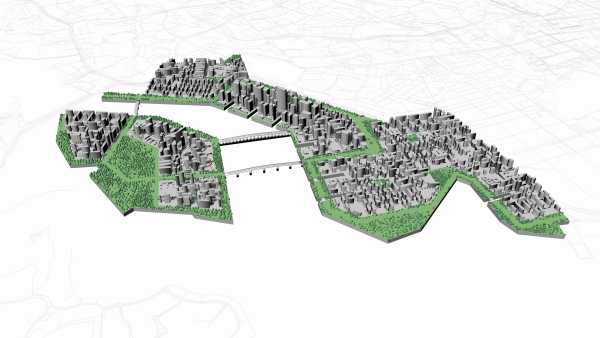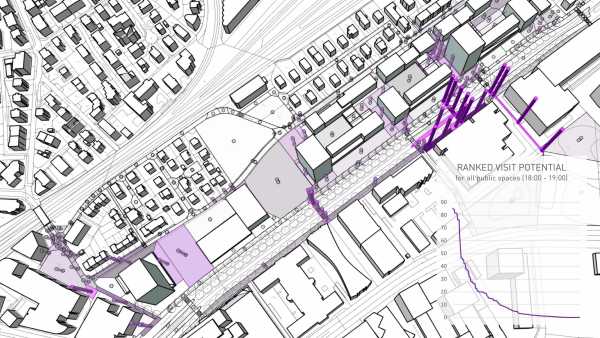Big Data Informed Urban Design and Governance

Informing urban design and governance through big data analytics, complexity science, cognitive design computing and citizen design science
With the rising complexity of modern cities, traditional urban planning, urban design and urban management methods reach their limits. Life in a city has become increasingly dynamic, whereas urban planning often relies on static and sectorial approaches, involving a very limited number of citizens and stakeholders in relevant decisions.
At the same time, Big Data is becoming an exponentially growing source for evidence-based high-quality decisions by analysing existing or past situations. Big Data Informed Urban Design and Governance transcends the retrospective view by integrating advanced data analytics into the urban design and planning process. Our hypothesis is that this will directly improve the liveability and resilience of cities.
Big Data Informed Urban Design and Governance will develop a framework to support urban planning, urban design, and urban management with five work streams: urban governance, cognitive design computing, urban complexity, citizen design science and evidence informed urban design.
We begin with data-mining for various types of geo-referenced data, such as socio-economic data of people, land use, infrastructure networks, mobility traces and emotional responses. Correlations detected through data-mining procedures are added to the urban model to describe the complex urban system in more detail. By investigating correlations between spatial configurations and behavioural phenomena, we look for contextual effects for their future usage and function that certain spatial configurations can have.
While information derived from Big Data will make urban planners and designers more informed and aware, it will also strengthen the role of design as an activity that sets goals beyond past evidence, in the future. Big Data Informed Urban Design and Governance will fundamentally improve the understanding and utilisation of urban data; it will support the formalisation of expert knowledge for the design and decision making processes. On the applied research level, it will integrate the methods developed by the team into an interactive planning support system, which, by visualising planning effects differently, provides a tool for designers, politicians, citizens, and other stakeholders.
Big Data Informed Urban Design and Governance contributes to the scenario Responsive Cities and will interactively explore the design scenarios it creates with the High-Density Mixed-Use City and Archipelago Cities scenarios.
Gallery: Big Data-Informed Urban Design
 Keong Saik Design Station: Citizen Design Science workshop at Urban Venture. Credit: Johannes Mueller
Keong Saik Design Station: Citizen Design Science workshop at Urban Venture. Credit: Johannes Mueller Visit Potential Model. Credit: Pieter Herthogs
Visit Potential Model. Credit: Pieter Herthogs
